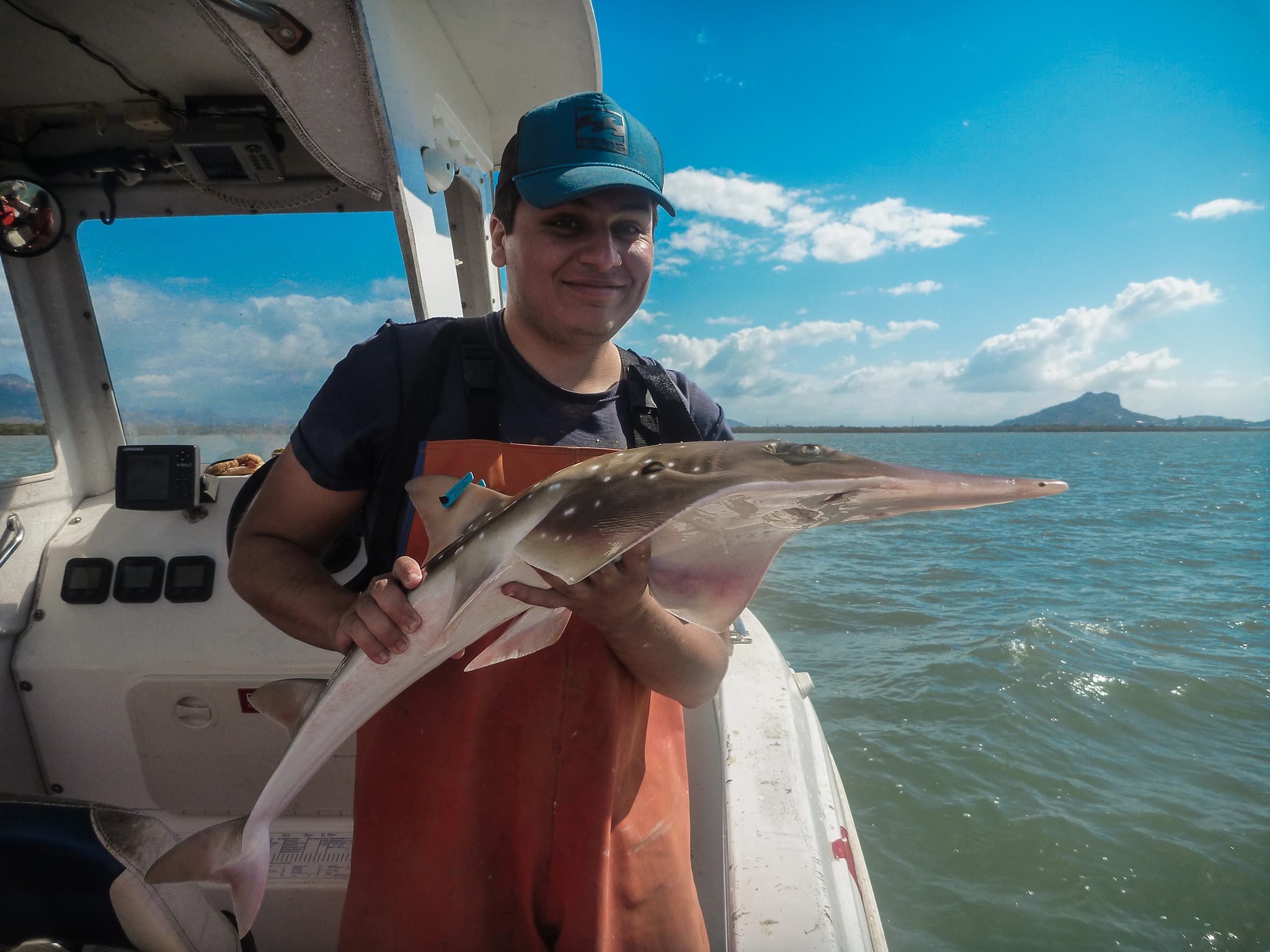
David Moreno
Sharkologist!
PhD Candidate (Marine Ecology)
Institute for Marine and Antarctic Studies, University of Tasmania
Where do sharks go when they migrate? How old are they? How will they respond to climate change and other threats? These are some of the many questions that I am interested in answering as a shark biologist and ecologist.
I have always been curious, and as a kid I was especially interested in dinosaurs and marine life. When the time to go to University came, I decided to do a degree in Marine Sciense. During my degree I gained a better understanding of the importance of marine systems and the threats they face. But most importantly I began to understand the important role of science in the conservation of our oceans.
During this period I was lucky to get to work in projects in Australia, Mexico and the Galapagos Islands. This experience made me particularly interested in sharks and their relatives. They are prehistoric in origin, have awesome teeth, are of great importance for marine ecosystems, and are very cool. However, remarkably little is known about many shark species, some of which are now threatened or vulnerable. I was particularly drawn to study the way humans interact with them in fisheries and how those interactions change between developing and developed nations.
I have now begun my own research using modelling techniques to better manage poorly understood sharks species. My current research has expanded on this to include animal movement, reproductive biology, life histories and new techniques to create a more complete picture of a species. I am doing this for a special population of sharks of the West coast of Tasmania, where I have been lucky to work for the past three years. I hope that by increasing our understanding of their biology we can better manage these amazing species and protect them to ensure their continued permanence.
Science has allowed me to travel around the world, meet very interesting people and satisfy my natural curiosity. It has also given me skills like scuba diving, animal handling, use of specialized equipment and even data analysis. But above all else, a career in science has allowed me to do what I like most for a living.
For more information: